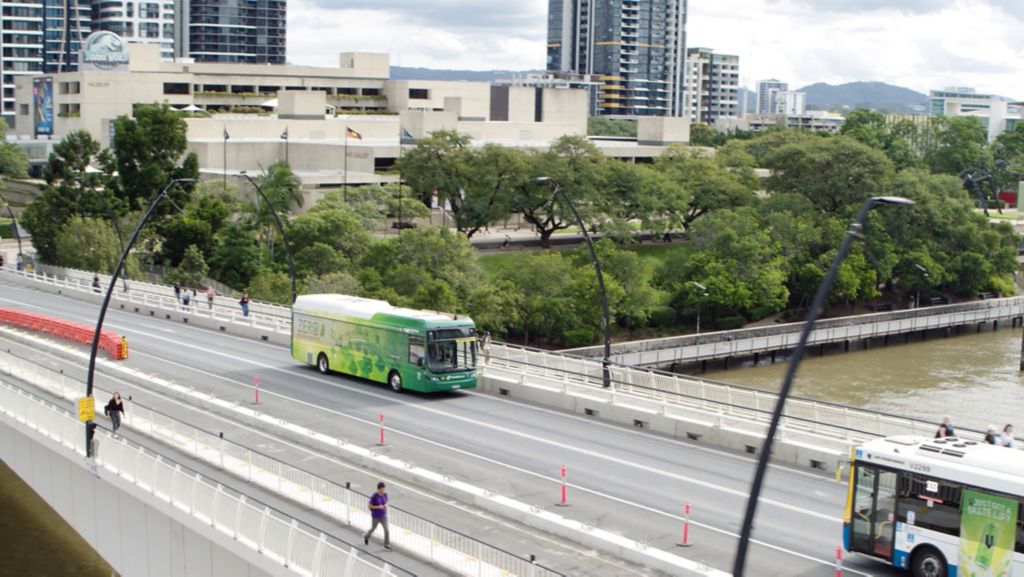How will public transport help Brisbane achieve a climate-positive Olympics


Brisbane is the first city in the world contractually obliged to hold a climate-positive Olympic Games. In practice, this means the city needs to remove more carbon from the atmosphere than the Games emit. It’s an incredibly ambitious target but also an opportunity for the city to create a more sustainable and livable Brisbane for the future. And it is already having a big impact on the city’s infrastructure and public transport.
The Olympics are set to accelerate the Queensland Government’s Climate Action Plan, which aims for net zero emissions by 2050, because it creates a distinct deadline – one that cannot be pushed back or renegotiated. If it is to be achieved, the city needs to act drastically, and it needs to act now. To obtain long-lasting sustainability gains, however, heavy investments in deep decarbonization are required.
Dr. Cle-Anne Gabriel, Sustainability Expert at the University of Queensland, and founder and CEO of ThinkZero, has extensive experience consulting private companies and public institutions on issues surrounding sustainable development. Since Brisbane won the Olympics, she has noticed a distinct shift in people’s attitudes and growing urgency when it comes to climate change.
“In 2032, the eyes of the world will be on Brisbane, so there is nowhere to hide if we do not meet our target,” she says. “But in the process, we can see that this is a fantastic opportunity to transform Brisbane itself. We’re asking ourselves questions like what kind of city do we want to live in? How can we make it more sustainable? More socially equitable? In many ways, this process is much more important to our future development than the 2032 target for a climate-positive Games.”
We can see that this is a fantastic opportunity to transform Brisbane itself. We’re asking ourselves questions like what kind of city do we want to live in? How can we make it more sustainable?
One area that is already showing signs of rapid change is the city’s public transport, which plays a key role in sustainable urban development. The new Brisbane Metro, a high-frequency rapid transit system utilizing high-capacity electric buses, is expected to begin operations by the end of 2024. Construction is underway in the Cross River Rail project, which will see new underground train stations in operation from 2026. And linking them all together are an increasing number of pedestrian bridges and bicycle paths.
Meanwhile, electric buses are increasingly replacing diesel, which is set to continue under the Zero Emission Bus program. From 2025 onwards, all new buses purchased for public transport in southeast Queensland will be zero-emissions. The aim is to reduce emissions from Brisbane’s bus fleet by 50 percent by 2030, and 80 percent by 2035.
“The Games organizers are hoping that 90 percent of spectators and athletes will take public transport, and that’s going to need a really big investment from the city,” says Cle-Anne. “But the result means more connections and more choices for everyone, making it easier for everyone in Brisbane to get around. What we’re all hoping for is that the Games will not only leave a sustainability legacy, but lead to some well-being outcomes as well.”
Dr. Tony Heynen, Senior Lecturer and Sustainable Energy Expert at the University of Queensland, has done extensive research and modeling into how Brisbane might achieve a climate-positive Games. His conclusion is that it is indeed possible, however how it is achieved will have a big impact in shaping the Olympics’ long-term legacy.
“You essentially have two levers: either reducing emissions through investments in renewable energy infrastructure, or through carbon offsets,” he explains. “We will need to use both levers, since carbon offsets are the only way we can compensate for things like increased air travel. However, what I found was that if we rely too much on carbon offsets – even if it is the cheaper, easier option – the long-term sustainability outcomes are poorer. If you want to achieve genuine social, environmental and economic gains, and leave a lasting legacy, it's far more effective to invest in renewable energy infrastructure and really reduce emissions in the first place.”
If you want to achieve genuine social, environmental and economic gains, and leave a lasting legacy, it's far more effective to invest in renewable energy infrastructure and really reduce emissions in the first place.
The heavy investment in renewable energy and zero-emission public transport are welcomed by Tony as being in line with the types of decarbonization measures required to achieve long-lasting sustainability gains. However, he also stresses that behavioral changes will be just as important. Changing the way people travel and commute will be critical to achieving a climate-positive Olympics and a zero-emission future.
“We're going to have amazing public transport infrastructure, but my concern is, will people still use it once the Olympics are over?” says Tony. “We can’t keep adding new lanes to our motorways – that’s not sustainable. So, we really need to incentivize people to use public transport by ensuring it's fast, reliable and cheap, and a viable alternative to taking the car.”
Along with hosting a climate-positive Olympics, it’s another highly-ambitious target – but Tony believes it's achievable. “A lot needs to be done but I’m optimistic that it will happen. Hosting the Olympics is a once in a lifetime opportunity.”